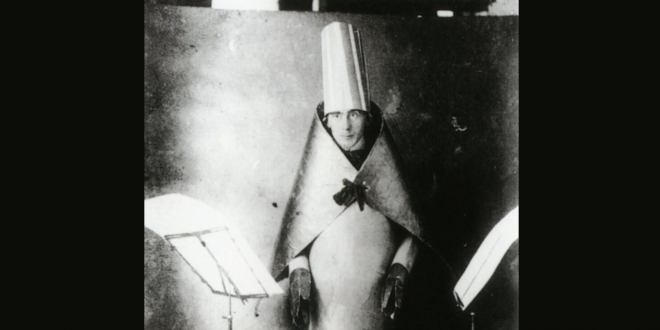April 8, 2021
4-6pm
via Zoom
In this talk I will discuss the rise of the cabaret in the late 19th and early 20th century within current debates surrounding the shift from drama towards theatre and performance studies. This will lead me to a formulation of the origin of Dada in the Ursprung, that is the performance of its origin in the mythologization of the Cabaret Voltaire.
Relying upon recent debates surrounding the concepts of constructivism and performativity informed by the input of disciplines such as theatre studies and performance studies, my study attempts to historicize our understanding of performativity and the heretofore conceived idea of the individual based on the dramaturgy of Dada’s cabaret. In the theatrical art form of the cabaret, artists experiment with a specific notion of individuality that forms its self through the liberating power of performative nonsense and contradiction. The idea of the drama as an artistic space of the origin and negotiation of the individual rests on a lasting tradition in German literature. Originating with the theatrum mundi, the bourgeoise Trauerspiel, the role of the theatre in the Bildungsroman, to Rainer Maria Rilke’s fourth Duineser Elegie, the history of the drama is the history of the struggling, emancipating, and, again, struggling individual. My study is informed by a concept of aesthetic that relies upon mediation as a performative process taking place within the phenomenological encounter between the work of art and its spectator. What does it mean to conceive of art as experience that is not informed by preconceived notions of genre, but rather a performance that displays the formative process itself?
To what extend Dada was informed by such a concept of performativity shows itself in the long tradition of performative practices and writings about the re-thinking of theatre and stagings throughout the early twentieth century. This kind of performativity is theorized throughout the aesthetic avant-garde, such as in the writing of the futurist Filippo Tommaso Marinetti’s “Das Varietétheater” from 1913 and Wassily Kandinsky’s dramatic pieces and his theoretical writings on drama and theater, for instance his Über das Geistige in der Kunst (1912) as well as the short text in Der blaue Reiter, “Über Bühnenkomposition” from 1914.
André Flicker is a PhD candidate in the Department of Germanic Languages & Literatures at the University of Toronto.
If you have any accommodation needs, please e-mail german@chass.utoronto.ca, and we will do our best to assist you.
 Department of Germanic Languages & Literatures University of Toronto
Department of Germanic Languages & Literatures University of Toronto
